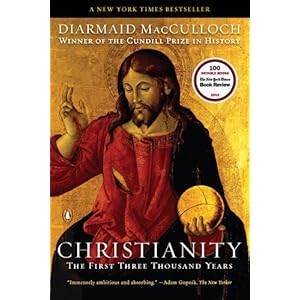 Takeaway: All theology is really a responsive theology to the conditions around us.
Takeaway: All theology is really a responsive theology to the conditions around us.
Purchase Links: Hardback, Paperback, Kindle Edition, Audible.com Audiobook (If purchasing, you want to think about paperback or audiobook. Kindle is the most expensive option at $29.99)
The next section of this book switches back to the rise of the western church as it separates from the East. A good section is devoted to the work and writings of Augustine. Much of what we in the west think of as traditional theology really was originated or strongly developed by Augustine. Augustine, like most theologians was a pastor first and was responding to the needs of those around him. A significant need was a theological understanding of how a good God could allow Rome to be sacked. After all, Rome was the head of a Christian empire and it was being defeated by pagans (or in some cases Arian Christians). Other areas where Augustine significantly influenced theology were in the concept of the Trinity (he had the first definitive western work), the relationship of the church and the world in his City of God, but probably most important was his concept of grace and election in the context of depravity of humanity. For Augustine, sin transfer (depravity) was the result of the sexual transmission and birth process. It is not too strong to suggest that for Augustine, sin was a sexually transmitted disease in our modern understanding of the term. Tying sex, birth and sin together has had long term consequences for the western church.
This book has made Wikipedia my friend. I am frequently listening as I doing data entry or some other intellectually light tasks. And while I have a decent grasp of historical theology, I have made use of Wikipedia a number of times to get brief backgrounds on different heresies or theological trends being discussed. I had a class in grad school called, “Introduction to Christian Thought, 500-1300 AD”. In general I liked the class, but it was oriented to the thought, not the history that gave rise to the thought. This book might be too much the other way. In his attempt to cover an enormous amount of ground very quickly, this book focuses on the history and occasionally gives too cursory a look at the background of the thought as it is speeding through the history.
0 thoughts on “Christianity: The First Three Thousand Years by Diarmaid MacCulloch – Part 4 (Augustine and rise of Western Thought)”